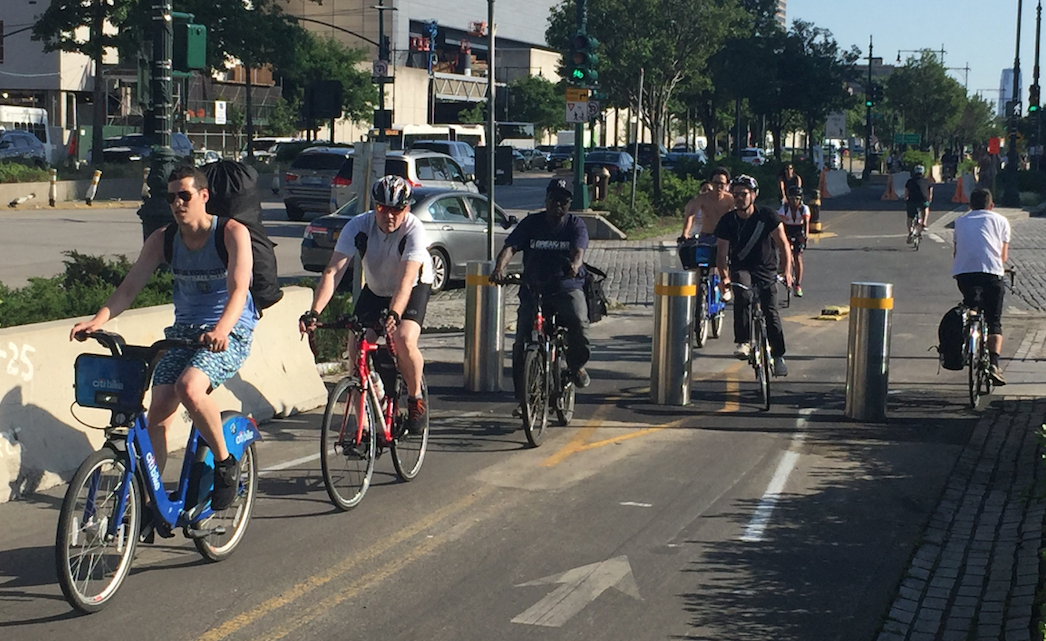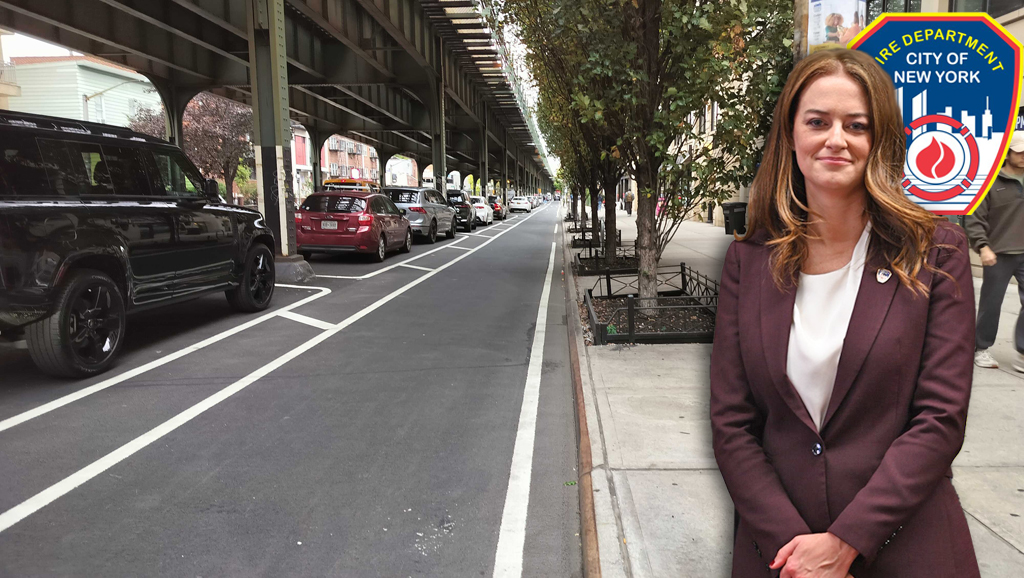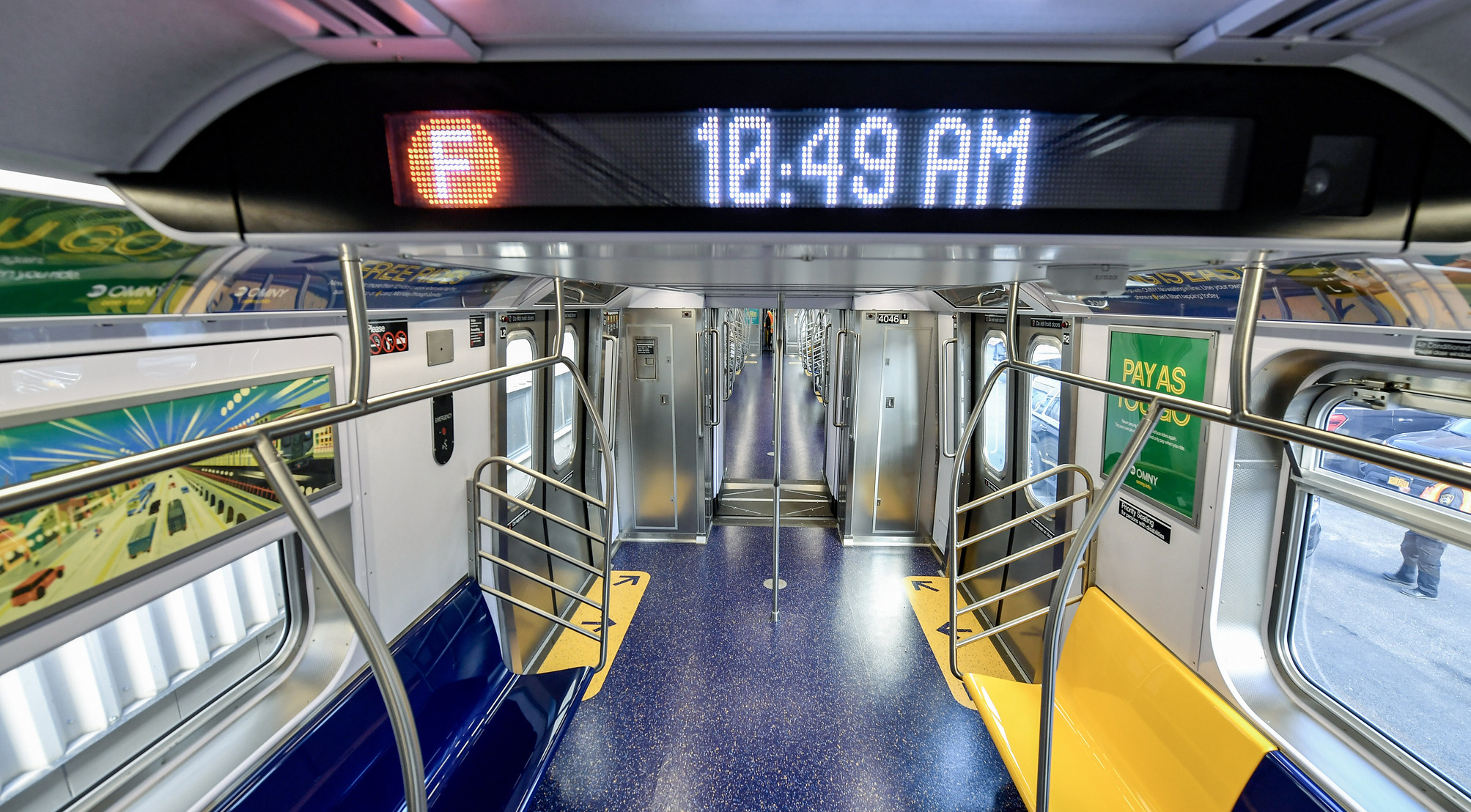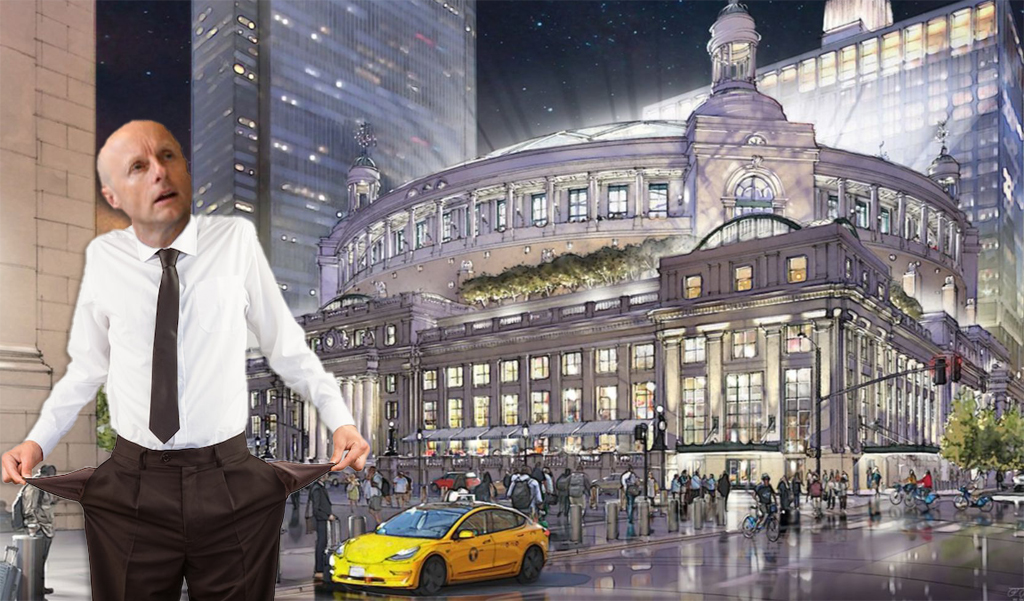The State Department of Transportation is not feeling the can-do spirit of Excelsior when it comes to a bike lane on the West Side Highway.
New York State Department Of Transportation Regional Director Craig Ruyle, who represents the agency on issues in New York City, suggested members of the Hudson River Park Trust Advisory Council shouldn't hold their breath waiting for a protected bike lane on West Street in Manhattan — aka the West Side Highway — even though three community boards and nine elected officials support an extension of the Hudson River Greenway onto the road.
"We have a few concerns with removing a lane on the travel way on the southbound side," Ruyle said at a meting on Tuesday night, citing three issues:
- The MTA and city DOT are still working on a congestion-pricing-related traffic study, which includes West Street, and the agencies "are looking to use some of the existing infrastructure along [West Street], which would include the right lane on the southbound side to place their electronic sensors" for tolling infrastructure.
- Removing a lane of traffic from the road could trigger an environmental review, although Ruyle acknowledged that he wasn't sure that was true.
- Taking a lane from the road might change traffic patterns. "There is a given volume of traffic on [West Street], and I don't know where that would go. Would we push it on to the local streets?" Ruyle asked.
Tuesday night's meeting was held in response to a growing call for the state DOT to do something about crowding on the Hudson River Greenway, the nation's busiest bike path. Residents of Manhattan's West Side say that the Greenway — which cyclists share with pedestrians — has become completely choked as more people have taken to cycling during the coronavirus pandemic. In response, Manhattan Community Boards 2 and 4 proposed an extension of the Greenway into West Street, from Canal Street to West 57th Street (where the road becomes an elevated highway) in May.
During the summer, Community Board 1, State Sens. Brad Hoylman, Robert Jackson and Brian Kavanaugh; Assembly Members Deborah Glick, Richard Gottfried and Linda Rosenthal; Manhattan Borough President Gale Brewer, City Council Speaker Corey Johnson and City Council Member Margaret Chin, all joined the push. By then, the proposal had morphed from a proposed two-way, protected bike lane into the subject of Tuesday's meeting: a one-way, protected bike lane southbound from West 57th Street to the Battery.
"The Hudson River Greenway along the west side of Manhattan is home to the busiest bicycle highway in North America and should be approached with the same bold vision that so many cities around the world have used to transform their transit infrastructure," the elected officials wrote in an August letter pitching the bike-lane conversion.
Members of the advisory council who spoke at the meeting differed with Ruyle's read of the situation; all voiced support for the proposal. Council President Jeffrey LeFrancois also said that the council and elected officials were banking on Gov. Cuomo to override any environmental-review consideration.
"The request was based on the [coronavirus] emergency powers granted to the governor, which would preclude the need for environmental studies to take over the lane," LeFrancois pointed out.
Ruyle's concerns echoed those of state DOT Regional Traffic Safety and Mobility Director Adam Levine, who last year said that "to remove a lane would congest the road."
But the city's experience with creating a large, car-free street, the 14th Street Busway, has showed that such concerns are largely unfounded.
According to a recent report, using winter 2020 traffic figures, by Sam Schwartz Engineering, "the diversion of most vehicle traffic from 14th Street has not resulted in major increases to congestion on area streets, with most east-west streets that run parallel to 14th Street experiencing only minor increases in vehicle travel times."
Ruyle said that he would relate the comments in favor of the bike lane to the State DOT, but he admitted that it's going to take a change of heart in a department that's shown hostility to removing car and truck traffic from West Street.
"Everybody is aware of the desire to turn this into a bike lane, and right now the department is not comfortable doing that," Ruyle said. "It doesn't mean that they won't change their mind at some point, but that's the feeling right now."






